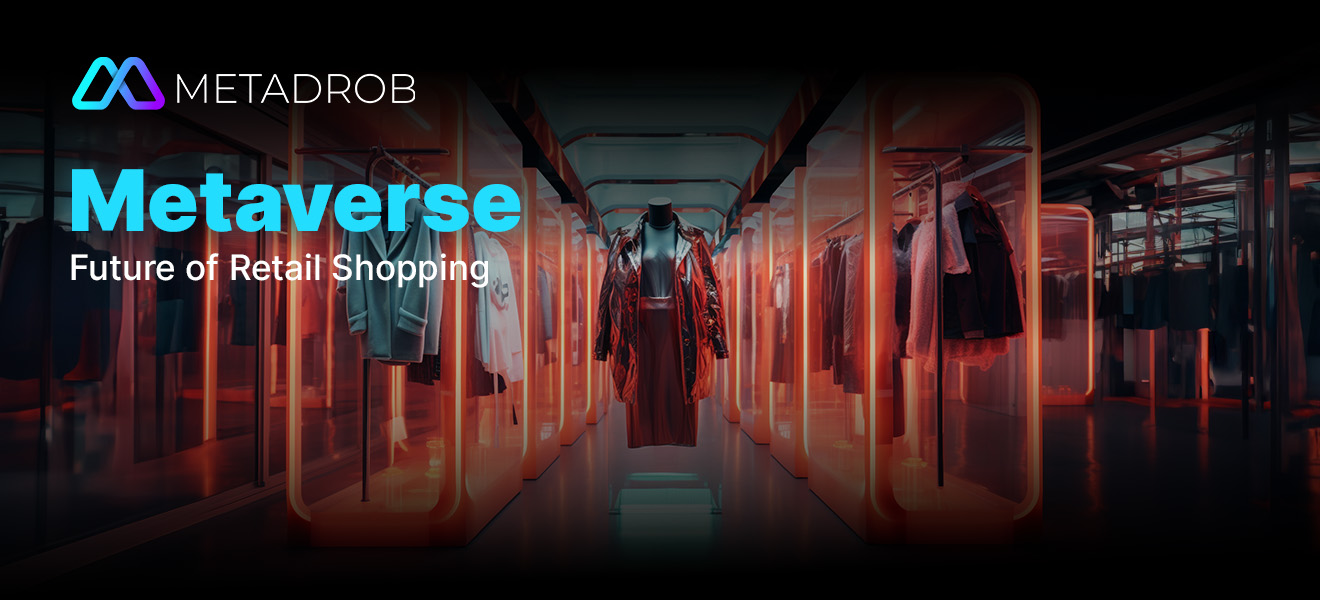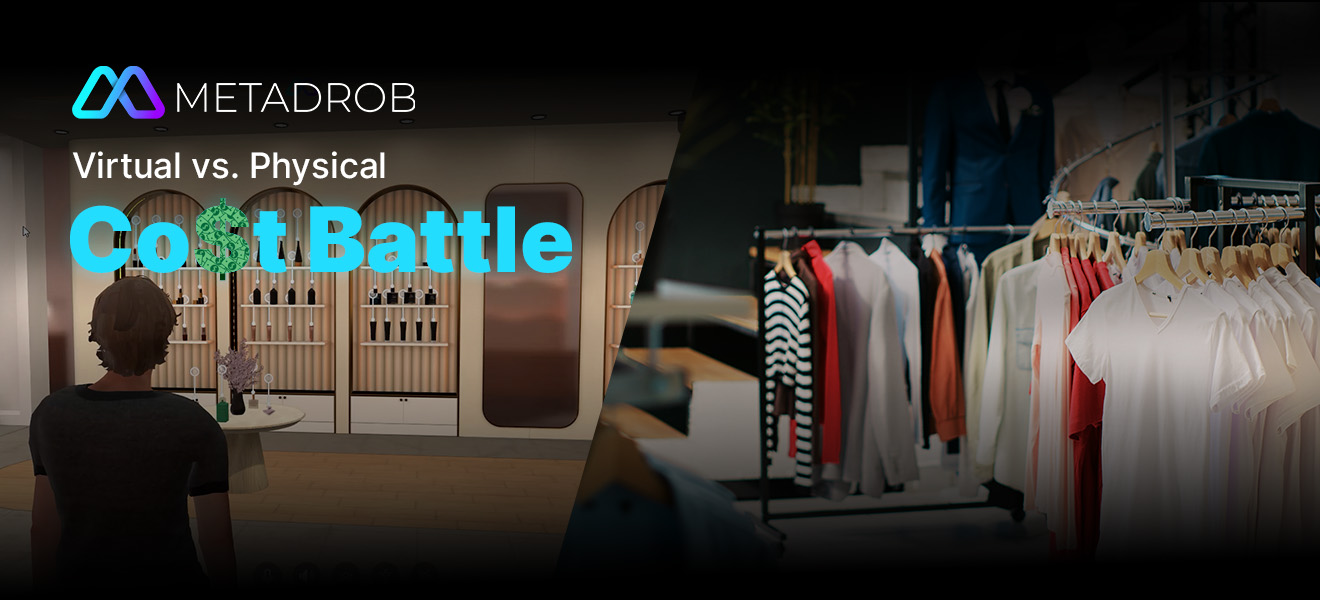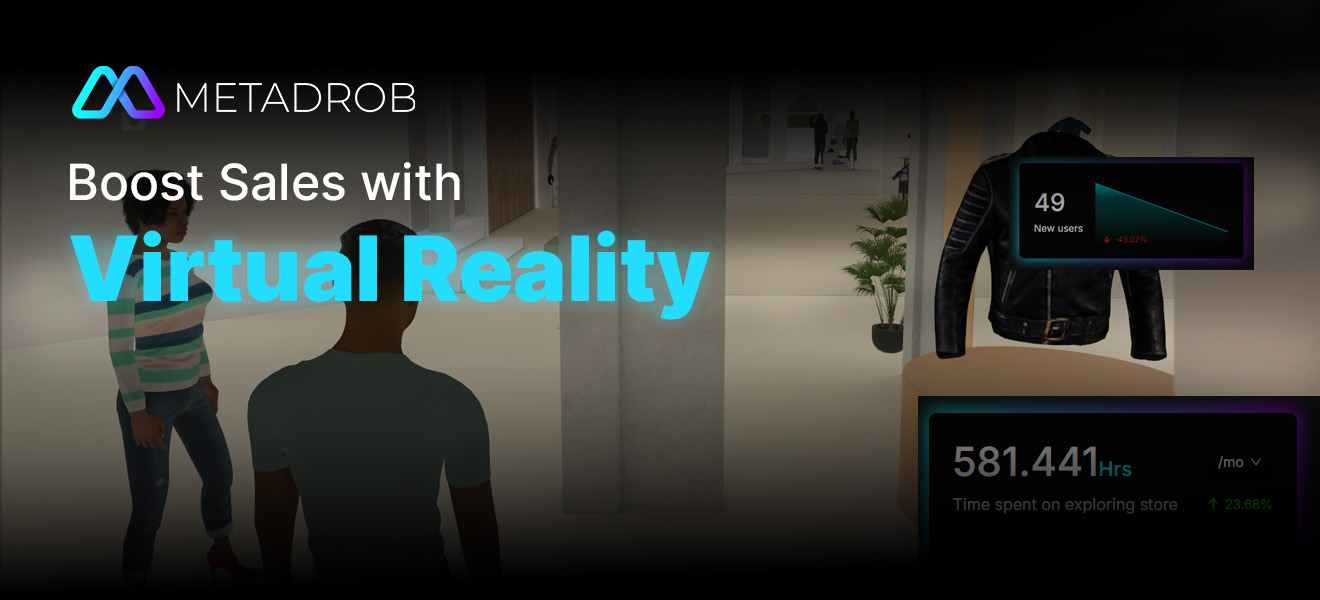Interactive Shopping: How 3D Virtual Stores Improve Decision-Making for Customers

Imagine having the flexibility to browse through and shop products from your couch, replicating a brick-and-mortar store experience! What you get is top-notch quality without the added hassles and waste of time. The digital world and the metaverse sounded like fairy tales some decades back. The world has advanced at the speed of light, and look where we stand today!
Well, the ‘digital revolution’ has taken over, and you can almost challenge someone to show one aspect of life that the digital wave hasn’t influenced.
Take, for example, the year 2020. It was the unfortunate year of the COVID-19 pandemic, where e-commerce revenues skyrocketed to $4.28 trillion globally! That’s as huge as it gets. With this monumental boom in Internet shopping, it is imperative for companies to not only establish a virtual store but also refine their marketplaces for maximum customer acquisition and retention.
This blog examines the key features to evaluate when selecting a virtual store platform, guaranteeing a robust and productive digital shopping experience. Let’s look at the comprehensive list of features you cannot afford to miss out on.
Powerful Virtual Showroom Editor
One of the primary capabilities of a digital marketplace platform is a highly customizable virtual showroom editor. This tool grants merchants the means to easily customize their online retail space. An excellent solution should provide the following:
Diverse Thematic Templates
An assorted selection of templates allows businesses to craft visually striking showrooms tailored to their distinctive brand identity.
Straightforward Yet Powerful Interface
The editor must be intuitive, permitting users to shape their virtual store without requiring extensive specialized learning. Meanwhile, advanced features empower experienced designers to fully realize even the most imaginative concepts.
Streamlined Initiation
Ideally, merchants should have the potential to generate their virtual showroom in under 60 minutes, allowing swift entrance to promote sales. However, some owners may spend weeks perfecting minor nuances to offer shoppers a uniquely immersive experience.
This feature empowers retailers to sustain a unique brand image and adapt their store configurations according to seasonal tendencies or promotional campaigns. The ability to remodel stores helps businesses continuously engage ever-evolving customer interests.
Rich 3D Library
A rich and diverse 3D library in a virtual store has several benefits. Here, we have discussed some of them:
- Enhanced Visualization: Customers can view the products from multiple angles and even zoom them for details. As a brand owner, this is definitely one of the features to look out for.
- Informed Decisions: The feature-rich 3D library makes sure every minute detail about the products is included. Quite naturally, it reduces uncertainty and minimizes returns.
- Increased Engagement: Information about products help captivates customers resulting in higher conversion rates.
- Customization: The option of customisation ensures real-time visualization of personalized products.
- Online-In-Store Experience: This particular feature simulates in-store feel and also fosters loyalty.
A rich 3D library provides large possibilities for e-commerce platforms. Within the expansive collection are intricate three-dimensional models and creative media that empower businesses in numerous ways. High-quality 3D visuals, whether static images or lively animations, grant products a realistic appearance that attracts potential buyers and enhances the shopping experience.
Further, the library allows custom configurations so brands may craft a unique digital environment resonating with their targeted demographic. Information remains easy to access thanks to tidy organization; finding and incorporating desired elements into virtual showrooms proves straightforward.
This feature proves integral in cultivating an engaging and immersive shopping experience that can notably impact customer satisfaction and loyalty.
Intelligent Analytics
To thrive in today’s competitive e-commerce landscape, retailers must leverage insightful data-driven intelligence.
Advanced analytic functions deliver detailed tracking of customer movements across the virtual storefront, unveiling which goods garner popularity and how visitors browse; comprehensive metrics detailing sales figures, conversion rates, and engagement data, aiding strategic decision-making.
Visually engaging data depictions expedite trend comprehension, allowing timely tactic adjustments. Harnessing intelligent analytics permits refining promotional campaigns, optimizing product placement selections, and improving the client experience – equipping businesses to outperform in this demanding online retail environment.
Multiplayer Functionality
Incorporating multiplayer functionality allows customers to partake in a social shopping experience. This innovative feature enables customers to shop communally with loved ones from afar, strengthening the bond of togetherness even when physically separated.
Group shopping now surmounts all boundaries, allowing families and friends to browse products, exchange thoughtful considerations, and build consensus in real-time from their choice of internet-connected devices.
The seamless crossover between screens ensures all can be involved regardless of their gadget. Smartphones, tablets, laptops, and more unite in a shared mission.
Gamification
The presence of gamification features happens to be another advantage. Here are some of the benefits to talk about:
- Enhanced Loyalty: Exciting and interesting gaming features turn one-time buyers into repeat customers.
- Data Insights: Well, this particular feature provides valuable insights into customer behavior.
- Appeal to Youth: Once you gamify the features of your virtual store, it resonates with Gen Z and younger consumers even more.
Gamification techniques represent an innovative way to heighten customer engagement throughout the retail process. By incorporating components akin to gameplay, merchants can motivate participation, boost revenue, and strengthen brand allegiance.
Participation becomes more engaging as clients can earn points and unlock perks by exploring offerings, making each shopping trip more fulfilling. Intrigue also increases as patrons are incentivized to explore more selections, which lifts overall sales numbers.
Most importantly, loyalty grows ever stronger through rewards, encouraging returns and repeat purchases. No longer a transaction alone, shopping changes into an interactive experience appealing to a diversity of personalities. Gamification transforms routine errands into stimulating adventures, cultivating a broad, devoted clientele for merchants.
Seamless Integration
A virtual store platform should offer seamless integration capabilities with existing e-commerce systems. This feature allows businesses to effortlessly sync their online operations. Enabling frictionless connections to platforms such as Shopify and WooCommerce means retailers can transition to virtual shopping without disruptions.
Managing inventory, processing transactions, and servicing clientele can be overseen holistically from an aggregated dashboard. This centralized command module streamlines processes end-to-end. Perhaps most importantly, an integrated virtual experience provides continuity that satisfies consumers.
Whether researching, choosing, or obtaining goods, customers enjoy a seamless journey that fulfills their shopping needs. These inherent linking abilities are indispensable for enterprises seeking to upgrade their digital presence without totally reworking systems.
High-Quality Media Support
To fully immerse shoppers in a virtual marketplace, virtual stores must leverage multimedia of the highest quality. This comprehensive media toolbox includes crystal clear photographs that empower patrons to meticulously scrutinize each product as if standing alongside it on a shelf.
Interactive product demonstrations take browsing to an innovative level, rotating items on command and zooming in on intricate details to satisfy curiosity. Instructional video clips also bring goods to life, exhibiting their functionality and eligibility for various uses.
By prioritizing media that transports customers straight to the store, such progressive platforms can generate trust as solid as a handshake. Shoppers gain confidence that what they see is what they get, minimizing post-purchase returns and maximizing delight. With engaging and believable experiences, satisfaction spreads through the clientele like wildfire.
Virtual Clienteling
Virtual clienteling incorporates innovative solutions that enhance customer service in digital environments. It aims to offer personalized assistance through various channels like live chat, video calls, and AI chatbots. This allows for a customized shopping experience tailored to individual shoppers.
Sales associates can proactively engage with and offer guidance to online customers as they browse selections. Communication occurs across multiple platforms through seamless integration with social media. This permits addressing customer support preferences.
Relationships with patrons are strengthened by bridging gaps between in-store and online experiences. Fostering these connections serves to catalyze sales. Overall, virtual clienteling works to narrow divides between the physical and digital worlds of retail. In doing so, it cultivates loyal customer bases and increases business revenues.
PIM
Effective Product Information Management is crucial for maintaining accurate and comprehensive product data. Key aspects encompass:
- Providing thorough product profiles with all pertinent specifications, usage tips, and care instructions for customers.
- Permitting retailers to promptly and effectively update product particulars across all channels.
- Enabling exploratory customization so shoppers can examine options like size, color, and style enhances the buying experience.
Mobile Optimization
With the rise of mobile commerce, optimization for smartphones and tablets is imperative. Any digital marketplace must:
- Construct the virtual store to function seamlessly across all displays on mobile phones or touchscreen tablets.
- Streamline performance to decrease loading intervals, as large websites can induce high bounce rates.
- Design interfaces that are simple to maneuver via touch, bettering the user experience.
Tailoring for mobile is important for engaging the pool of consumers who opt to shop via their handheld devices.
Security Features
Finally, foolproof security features are essential in any virtual marketplace. Merchants would be best served seeking out:
- Shielding consumer information through robust SSL encryption and protected payment gateways is paramount to cultivating trust.
- Compliance with pivotal guidelines such as GDPR and PCI DSS confirms that customer data is handled judiciously.
Regular security checks and improvements aid in staying one step ahead of looming risks, while a stringent security system instills faith in patrons, encouraging purchases without dread of information breaches.
Want To Get Your Very Own Virtual Store Platform? Get Started With Metadrob
Choosing the right virtual store platform is a complex process that demands consideration of a wide array of salient features. Metadrob represents the premier choice for creating your virtual store owing to its formidable features and intuitive platform. Zero coding is mandated as 1000+ adaptable templates, and an extensive 3D library can be leveraged to craft an immersive virtual environment.
Intelligent analytics provide valuable consumer behavior insights to aid strategic decision-making. Moreover, the multiplayer functionality contributes to heightened involvement and revenue generation. Metadrob’s affordable pricing makes virtual stores accessible to businesses of all sizes.
Connect with Metadrob
Ready to take the first step towards unlocking opportunities, realizing goals, and embracing innovation? We're here and eager to connect.

+91 966-004-4020






